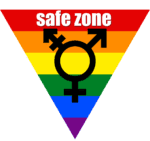Unite Against Bullying
Unite Against Bullying
Speak Out Illinois LLC in partnership with Central Illinois School Districts, provides information on Scholarships, Programs, Resources and Services for Students in High School in Peoria, Sangamon, Tazewell, and Woodford Counties.
Bullying is unwanted, aggressive behavior among school aged children that involves a real or perceived power imbalance. The behavior is repeated, or has the potential to be repeated, over time. Both kids who are bullied and who bully others may have serious, lasting problems.
In order to be considered bullying, the behavior must be aggressive and include:
An Imbalance of Power: Kids who bully use their power—such as physical strength, access to embarrassing information, or popularity—to control or harm others.
Power imbalances can change over time and in different situations, even if they involve the same people.
Repetition: Bullying behaviors happen more than once or have the potential to happen more than once.
Bullying includes actions such as making threats, spreading rumors, attacking someone physically or verbally, and excluding someone from a group on purpose.
- Verbal Bullying
- Social Bullying
- Physical Bullying
- Cyberbullying
Cyberbullying is bullying that takes place over digital devices like cell phones, computers, and tablets. Cyberbullying can occur through SMS, Text, and apps, or online in social media, forums, or gaming where people can view, participate in, or share content. Cyberbullying includes sending, posting, or sharing negative, harmful, false, or mean content about someone else. It can include sharing personal or private information about someone else causing embarrassment or humiliation. Some cyberbullying crosses the line into unlawful or criminal behavior.
The most common places where cyberbullying occurs are:
- Social Media, Such as Facebook, Instagram, Snapchat and Tik Tok
- Text Messaging and Messaging Apps
- Instant Messaging, Direct Messaging, and Online Chat Boards
- Online Gaming Communities
Schools and communities that respect diversity can help protect children against bullying behavior. However, when children are not in supportive environments, they may be at a higher risk of being bullied.
When bullying is sufficiently serious and based on race/ethnicity, national origin, or religion, it may be considered discriminatory harassment. Learn more about federal civil rights laws.
If you or someone you know has been bullied because of their race/ethnicity, national origin, or religion at school you can:
- Notify a School Leader
- Write down the Details
- Ask for a Language Interpreter
- Consider filing a Complaint with the U.S. Department of Justice OR the U.S. Department of Education
Kids who are bullied can experience negative physical, social, emotional, academic, and mental health issues. Kids who are bullied are more likely to experience:
- Depression and anxiety, increased feelings of sadness and loneliness, changes in sleep and eating patterns, and loss of interest in activities they used to enjoy. These issues may persist into adulthood.
- Healh complaints
- Decreased academic achievement—GPA and standardized test scores—and school participation. They are more likely to miss, skip, or drop out of school.
Some signs that may point to a bullying problem are:
- Unexplainable injuries
- Lost or destroyed clothing, books, electronics, or jewelry.
- Frequent headaches or stomach aches, feeling sick or faking illness.
- Changes in eating habits, like suddenly skipping meals or binge eating. Kids may come home from school hungry because they did not eat lunch.
- Difficulty sleeping or frequent nightmares.
- Declining grades, loss of interest in schoolwork, or not wanting to go to school.
- Sudden loss of friends or avoidance of social situations
- Feelings of helplessness or decreased self-esteem.
- Self-destructive behaviors such as running away from home, harming themselves, or talking about suicide.
Kids may be bullying others if they:
- Get into physical or verbal fights
- Have friends who bully others
- Are increasingly aggressive
- Get sent to the principal’s office or to detention frequently
- Have unexplained extra money or new belongings.
- Blame others for their problems.
- Don’t accept responsibility for their actions.
- Are competitive and worry about their reputation or popularity.
Parents, school staff, and other caring adults have a role to play in preventing bullying. They can:
- Help kids understand bullying. Talk about what bullying is and how to stand up to it safely. Tell kids bullying is unacceptable. Make sure kids know how to get help.
- Keep the lines of communication open. Check in with kids often. Listen to them. Know their friends, ask about school, and understand their concerns.
- Encourage kids to do what they love. Special activities, interests, and hobbies can boost confidence, help kids make friends, and protect them from bullying behavior.
- Model how to treat others with kindness and respect.
Kids who know what bullying is can better identify it. They can talk about bullying if it happens to them or others. Kids need to know ways to safely stand up to bullying and how to get help.
- Encourage kids to speak to a trusted adult if they are bullied or see others being bullied. The adult can give comfort, support, and advice, even if they can’t solve the problem directly. Encourage the child to report bullying if it happens.
- Talk about how to stand up to kids who bully. Give tips, like using humor and saying “stop” directly and confidently. Talk about what to do if those actions don’t work, like walking away
- Talk about strategies for staying safe, such as staying near adults or groups of other kids.
- Urge them to help kids who are bullied by showing kindness or getting help.


